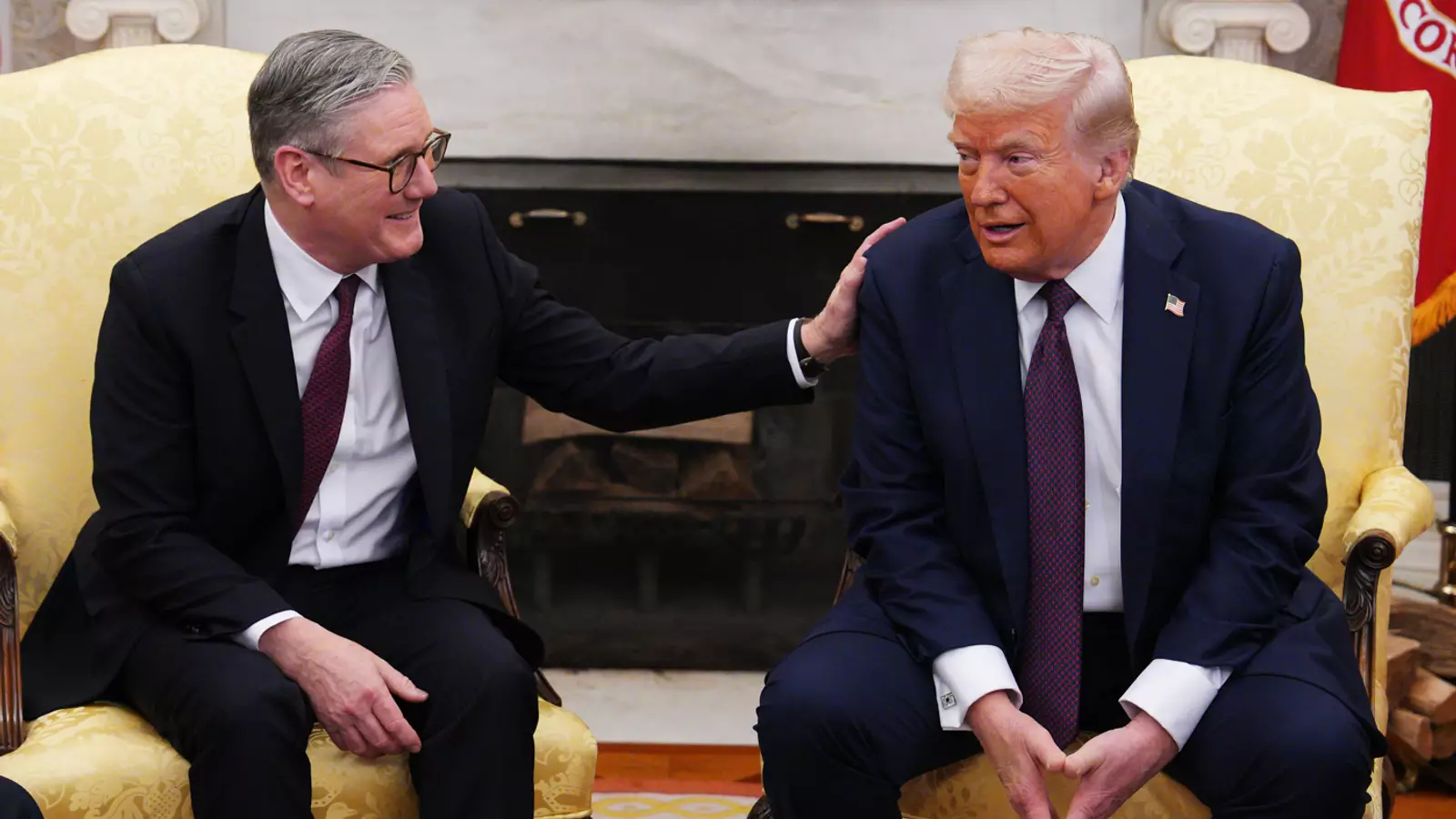In the world of global politics and finance, trade agreements and tariffs can wield tremendous influence, often determining the economic landscape of entire nations. With a brewing storm over US-UK trade negotiations, the air is thick with unease as both countries brace for what may become an unraveling of critical economic ties. Prime Minister Sir Keir Starmer, amid declarations of “well-advanced” trade talks, finds himself at the center of a potential storm triggered by impending tariffs from President Trump. This precarious situation raises alarms about the very fabric of UK trade relations with the US and the broader implications for the economy.
Tariffs, particularly when announced with the fanfare and bravado characteristic of Trump’s presidency, symbolize more than just import taxes; they represent a dangerous escalation in trade diplomacy. While Starmer strives to maintain an air of optimism, noting the rapid progress in negotiations, the looming tariffs on all UK exports could usher in an entirely new economic reality—one fraught with uncertainty and potential retaliatory measures.
A Calm Before the Storm?
Starmer’s insistence on a “calm approach” instead of a “knee-jerk” response could be interpreted as both prudent and dangerously naive. The looming reality of tariffs, festooned with Trump’s promises of “Liberation Day,” is less a celebration and more a bell ringing in an era of protectionism that could have far-reaching consequences. Is it wise for Starmer to put on a brave face and embrace a composure that borders on complacency, when the stakes have never been higher?
The tumultuous backdrop of economic fluctuation, particularly with forecasts predicting a potential 1% reduction in the UK economy due to the tariffs, underscores the need for a sense of urgency. Suggesting that a calm, collected approach is the best course of action gives the appearance of being disconnected from the grim realities faced by industries—especially the automotive sector—depending on timely resolutions.
Hope Amid Uncertainty
Secretary of State Jonathan Reynolds expresses optimism that these tariffs might be temporary, a hope reflected in many financial quarters. However, this optimism feels hollow when juxtaposed with the grim warnings about retaliatory tariffs. While one cannot dismiss Reynolds’ desire for a “calm-headed” approach, one must question whether this method reflects a true understanding of the ramifications at play. The stakes are high, and merely hoping for a resolution appears insufficient in a landscape where every decision is laced with complexity.
As the U.S. prepares to unveil its tariff plan, the broader implications for international trade relations come into sharper focus. The political landscape is replete with fierce competition and trade imbalances, but turning to tariffs as a solution only serves to add to the chaos. The question arises: at what point does the pursuit of an “American-first” policy become an impediment to global cooperation?
A Fragile Economic Ecosystem
The dynamics of international trade are delicate, with interdependencies that can either build resilience or create disparaging divides. The UK’s delicate apparatus, already shaken by Brexit repercussions, faces multiple shocks as Trump’s tariffs loom ominously in the background. The prediction that British economic performance may take a direct hit could serve as a harbinger for even more severe repercussions down the road.
In light of this, Starmer and his administration must walk a fine line, balancing the demands of national integrity against the urgent need for a revitalized trade relationship with the United States. A level-headed response should not equate to inaction or passivity; instead, it must involve pushing back against aggressive trade measures while still seeking a method for diplomatic engagement. This straddling act requires not only strategic acumen but a keen sensibility to the realities affecting thousands of workers and small businesses across the UK.
As the global markets tremor in reaction to this impending crisis, it is painfully clear that we are at a crossroads. The UK must bolster its alliances, dig deep for diplomatic tools, and champion industry interests that stand to suffer most from the fallout. Failure to act decisively and assertively now could spell danger for future economic stability—it’s time we focus on reinforcing trade relationships rather than exacerbating tensions that can only lead to detriment in the long run.

Leave a Reply